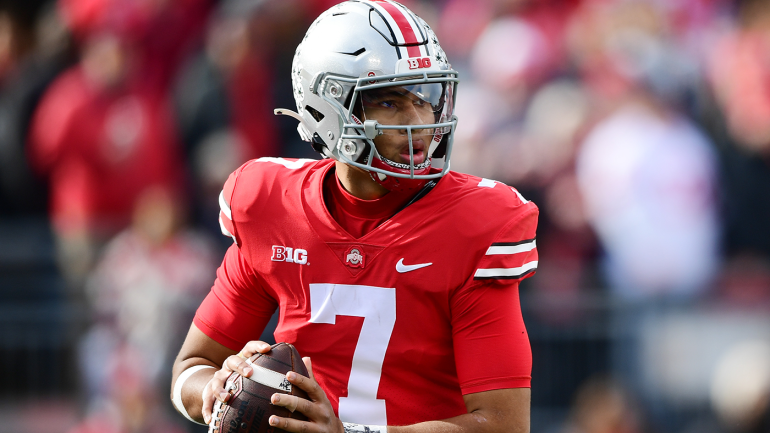
Ohio State quarterback C.J. Stroud believes that players should receive revenue share from the $1.2 billion annual media rights contract that the Big Ten announced on Thursday. The historic seven-year deal between the Big Ten and multiple television partners will run through the 2029 football season and is believed to be the largest in the history of college athletics. The contract will pay each Big Ten institution $75 million from television rights alone.
"I definitely think it should be shared," Stroud said. "But if not, at the end of the day, we have the NIL space. We can do it that way. The new college world is turning around and I'm here for it."
Stroud isn't the first player to advocate for revenue sharing, but he is one of the most visible figures in the game to speak out on the matter. The California native was named an All-American and Heisman finalist after completing 71.9% of his passes for 4,435 yards passing and 44 touchdowns during his first year as starter in the 2021 season. CBS Sports NFL Draft analyst Josh Edwards ranks Stroud as his projected No. 1 pick in the 2023 NFL Draft.
As it stands, college football players may receive total cost of attendance and up to $5,980 annually in academic bonuses following the NCAA v. Alston ruling. However, schools are not allowed to directly pay athletes for participation.
Big Ten commissioner Kevin Warren -- who has a longtime NFL background -- has been more receptive than most commissioners to player compensation. He told reporters at Big Ten Media Days that he has started discussing revenue with various players through an advisory and advocacy committee of athletes.
Warren also reportedly told HBO in an interview for Real Sports with Bryant Gumbel -- set to air Tuesday at 11 p.m. ET -- that he could foresee the Big Ten Conference having 20 members as well as finding a way to compensate players.
"I want to be part of this conversation and will be part of this conversation of what we can do to make this better," Warren told HBO.
![[object Object] Logo](https://sportshub.cbsistatic.com/i/2020/04/22/e9ceb731-8b3f-4c60-98fe-090ab66a2997/screen-shot-2020-04-22-at-11-04-56-am.png)


















